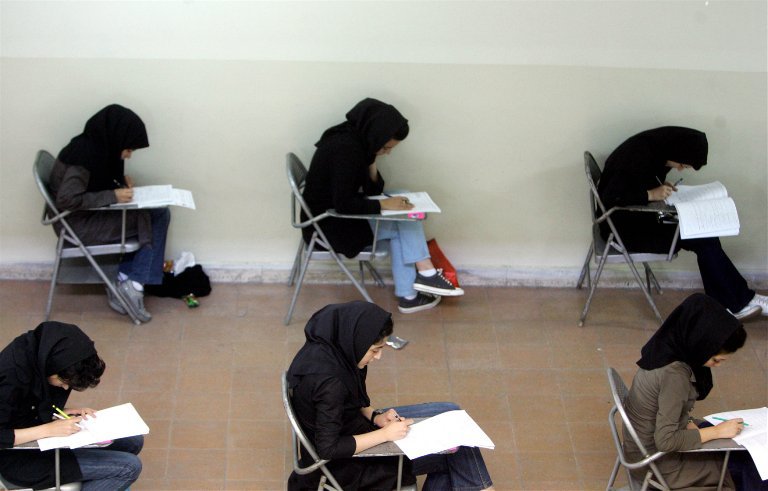Germany, UN call for Iran school poisonings investigation
Updated | By AFP
The United Nations backed a call from Germany's top diplomat on Friday urging a full and transparent investigation into the reported poisoning of hundreds of schoolgirls in Iran.

Hundreds of cases of respiratory distress have been reported in the past three months among schoolgirls in what one Iranian government official said could be an attempt to force the closure of girls' schools in the Islamic republic.
"The reports of schoolgirls being poisoned in Iran are shocking," Foreign Minister Annalena Baerbock said on Twitter.
At least 10 girls' schools were targeted in the latest suspected attacks on Wednesday: seven in the northwestern city of Ardabil and three in the capital Tehran.
"Girls must be able to go to school without fear -- whether in Tehran or Ardabil. This is nothing less than their human right," Baerbock said.
"All the cases must be fully investigated," she said.
In Geneva on Friday, the UN rights office also voiced alarm at the poisoning allegations.
"We are very concerned about these allegations that girls are being deliberately targeted under what appear to be mysterious circumstances," spokeswoman Ravina Shamdasani told reporters.
The UN rights office wants any investigation into the cases to be "transparent and the findings be made public, to bring the perpetrators to justice."
World Health Organization spokeswoman Margaret Harris meanwhile said the UN health agency was in contact with national health authorities and medical professionals about the incidents, and was "using other means to understand more about the event so that we have better evidence."
Since the outbreak of the mysterious poisonings in November, almost 1,200 students have required hospital treatment for breathing difficulties, an Iranian lawmaker said Wednesday.
The poisonings have provoked a wave of anger across the country, with critics denouncing official silence in the face of the growing number of schools reportedly being targeted.
Relations between Germany and Iran have been particularly strained following the wave of protest that erupted over the death of 22-year-old Mahsa Amini in September last year.
Baerbock herself has been at the forefront of Western voices condemning Tehran's bloody crackdown on demonstrations and its executions of anti-government protesters.
Meanwhile, Tehran on Thursday expelled two German diplomats in a tit-for-tat move after Berlin took similar action in response to a death sentence handed down against German-Iranian dual national, Jamshid Sharmahd.

Show's Stories
-
Vin Diesel announces Fast and the Furious finale
The two pinnacles from the amazing news had to do with Los Angeles and t...
Danny Guselli 4 hours ago -
Durban man keeps history alive with cereal box bus models
John Fann (80) has spent the last four years recreating Durban's bus mod...
Danny Guselli 4 hours ago